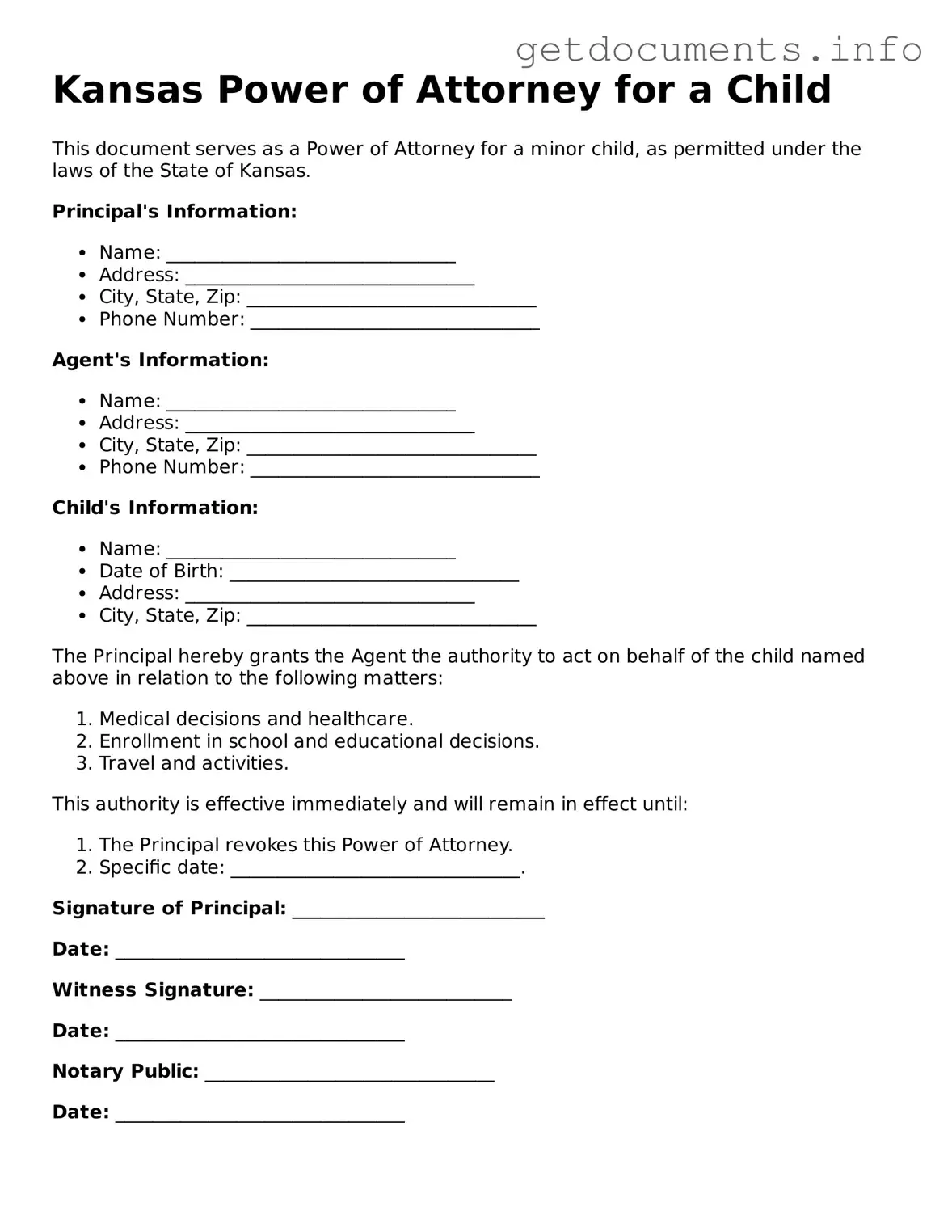Free Power of Attorney for a Child Template for Kansas
The Kansas Power of Attorney for a Child form is a legal document that allows a parent or guardian to grant another individual the authority to make decisions on behalf of their child. This form is essential for ensuring that a trusted person can care for and make important choices for a child in the absence of a parent or guardian. For those considering this option, completing the form is a straightforward process that can provide peace of mind.
Ready to fill out the Kansas Power of Attorney for a Child form? Click the button below to get started.
Access Power of Attorney for a Child Editor

Free Power of Attorney for a Child Template for Kansas
Access Power of Attorney for a Child Editor
Got places to be? Complete the form fast
Fill out Power of Attorney for a Child online and avoid printing or scanning.
Access Power of Attorney for a Child Editor
or
⇩ PDF File
